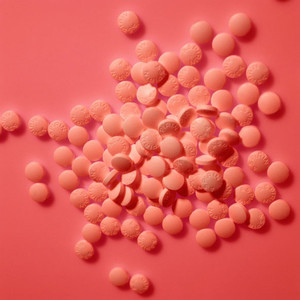India-based Aurobindo Pharma (Aurobindo) announced on 7 September 2011 that it had formed a joint venture with Russian company Ojsc Diod (Diod) to manufacture and sell pharmaceutical products in Belarus, Kazakhstan and Russia.
Aurobindo forms generics joint venture with Russia’s Diod
Home/Pharma News
|
Posted 21/10/2011
 0
Post your comment
0
Post your comment

The joint venture, called Aurospharma Company, plans to set up a plant in the Podolsk district of the Moscow region, which Aurobindo expects to be operating at full capacity by the end of 2013. The plant will make non-penicillin and non-cephalosporin Rx generics and other drugs that are categorised as OTC drugs in Russia.
The joint venture will also sell penicillins, cephalosporins and other therapy products manufactured by Aurobindo in the markets of Belarus, Kazakhstan and Russia.
Diod manufactures ecological healthcare equipment and nutrition supplements. The company intends to bring to the joint venture its unique long-term experience in selling medicinal drugs and nutrition supplements in Belarus, Kazakhstan and Russia. Diod also has distribution network resources and streamlined channels of interfacing with medical organisations to bring to the joint venture.
Mr Vladimir Tikhonov, CEO of Diod, said ‘the establishment of the joint venture should allow us to become an important player [in] the Russian pharmaceutical market within the target period.’
Aurobindo expects to enrich the joint venture with its successful international experience in manufacturing generics.
Mr Vishnu Sriram, Associate Vice-President, Aurobindo Pharma, expected the joint venture to give Aurobindo ‘an opportunity to localise production in Russia’. He added ‘using the Russian partner’s marketing vision, we will be able to enter the growing and challenging Russian market with greater confidence and expedite our presence in the market.’
The project is in line with the priorities of the Russian Government’s strategy for development of the Russian pharmaceutical industry for the period through 2020 (Pharma 2020 Strategy), which is being implemented by the Russian Ministry of Industry and Trade. The aim of this initiative is to make Russian public healthcare less dependent on import of originator drugs and to move towards locally manufactured generics. Under the Pharma 2020 Strategy, Russia aims to increase local producers’ share of total drug sales from the 20% share recorded in 2010 to 25% by 2012 and 50% by 2020 [1].
According to Russian-American Business, in 2010, the Russian pharmaceutical market was worth 8.6 billion [2]. And with growth in the Russian pharmaceutical market set to far outpace that for western nations this is looking like a very lucrative market to be a part of.
References
1. GaBI Online - Generics and Biosimilars Initiative. Russian drug spending set to reach US$4 billion by 2020 [www.gabionline.net]. Mol, Belgium: Pro Pharma Communications International; [cited 2011 October 21]. Available from: www.gabionline.net/Policies-Legislation/Russian-drug-spending-set-to-reach-US-4-billion-by-2020
2. Russian-American Business. Russia’s pharmaceutical market. 23 December 2010.
Source: Aurobindo
Guidelines
US guidance to remove biosimilar comparative efficacy studies
New guidance for biologicals in Pakistan and Hong Kong’s independent drug regulatory authority
Policies & Legislation
EU accepts results from FDA GMP inspections for sites outside the US
WHO to remove animal tests and establish 17 reference standards for biologicals
Formycon signs new aflibercept biosimilar pacts and launches ranivisio in Europe

Home/Pharma News Posted 13/11/2025
Bio-Thera and Stada expand biosimilars alliance to include tocilizumab

Home/Pharma News Posted 20/10/2025
The best selling biotechnology drugs of 2008: the next biosimilars targets








Post your comment